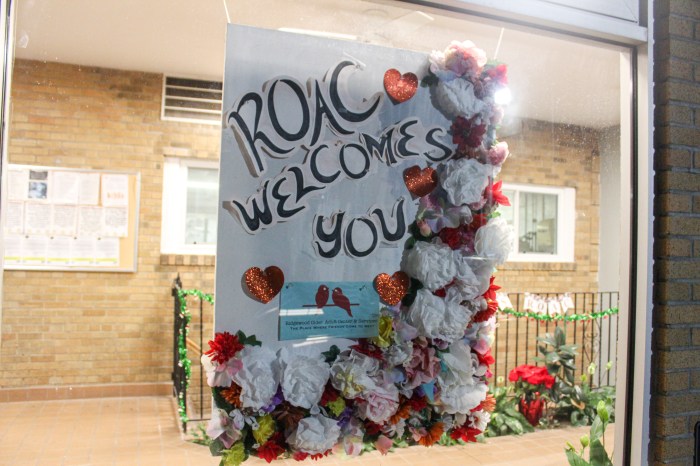By Michael Shields
State Assemblyman Barry Grodenchik (D-Flushing) appeared before a group of students at Queens College in a town-hall-style meeting last Thursday, fielding questions on potential cuts to higher education subsidy programs as Gov. George Pataki readied the 2004-2005 state budget for approval this week.
Grodenchik, a proponent of education, promised to fight against Pataki’s proposal to restructure tuition assistance programs, or TAP, and a potential 5 percent cut to education opportunity programs such as SEEK. Pataki has proposed that one-third of students’ TAP rewards should be held back until after they graduate.
“Many students will not be able to go to college if these cuts go through,” the assemblyman said of the new TAP requirement, which he said would punish lower-income students. “A lot of people just can’t make up that money. You can say to people, ‘you can always get the money later.’ For a lot of people, there won’t be a later.”
Grodenchik also pledged to fight against any immediate tuition increases for CUNY students. Last year tuition rose by $800 per year for senior colleges, among other increases. Thus far Pataki has not suggested any such cuts.
“You never rule anything out in Albany,” Grodenchik said. “This is about making priorities.”
He predicted the April 1 budget deadline would be missed, nothing that “this will be the 20th year we don’t pass the budget on time.”
Grodenchik was invited to speak at the school by Asi Klein, a Queens College 2002 graduate who is now a project manager for the New York Public Interest Research Group, a student advocacy group that organized the event. NYPIRG, which has members on 20 different CUNY and SUNY campuses, recently had 200 members from across the state converge for a lobbying visit in Albany to protest the upcoming budget.
Klein and Grodenchik sat on a panel that included Kevin McRae, a senior at Queens College who is president of the school’s political science club, and senior Shih Wan Kong, vice president of the Queens College Student Organization. The panel took questions from students in attendance.
While agreeing on most issues, the students and the assemblyman disagreed on the concept of “indexing” tuition increases. Grodenchik was in favor of such a structure, which would build in automatic tuition increases each year, allowing students to better budget.
“I think this is preferable to getting slammed every four years,” he said.
But Klein called indexing “a trap for students” and disputed the view that indexing will protect students. “The reality of the situation is, it’s going to increase every year,” he said. “That is just the nature of politics in New York City these days.”
The panel members were united in encouraging attendees to become active in voicing their concerns to local government.
“You need to show (officials) that you are aware of what they are doing,” Klein said. “Register to vote. Get involved in organizations that fight for students’ rights.”
For Grodenchik, such involvement also means writing or e-mailing elected officials. “It is important to communicate with your legislators,” he said. “I read every letter I receive.”
“Don’t ever take this place for granted,” he cautioned.
Grodenchik, who briefly attended Queens College before graduating from SUNY Binghampton, praised the CUNY system.
“I couldn’t have gone to college without it,” he said. “I grew up in public housing.”
Prior to the meeting, students held a ‘slam poetry’ session outside the student union during which they criticized education funding.

































